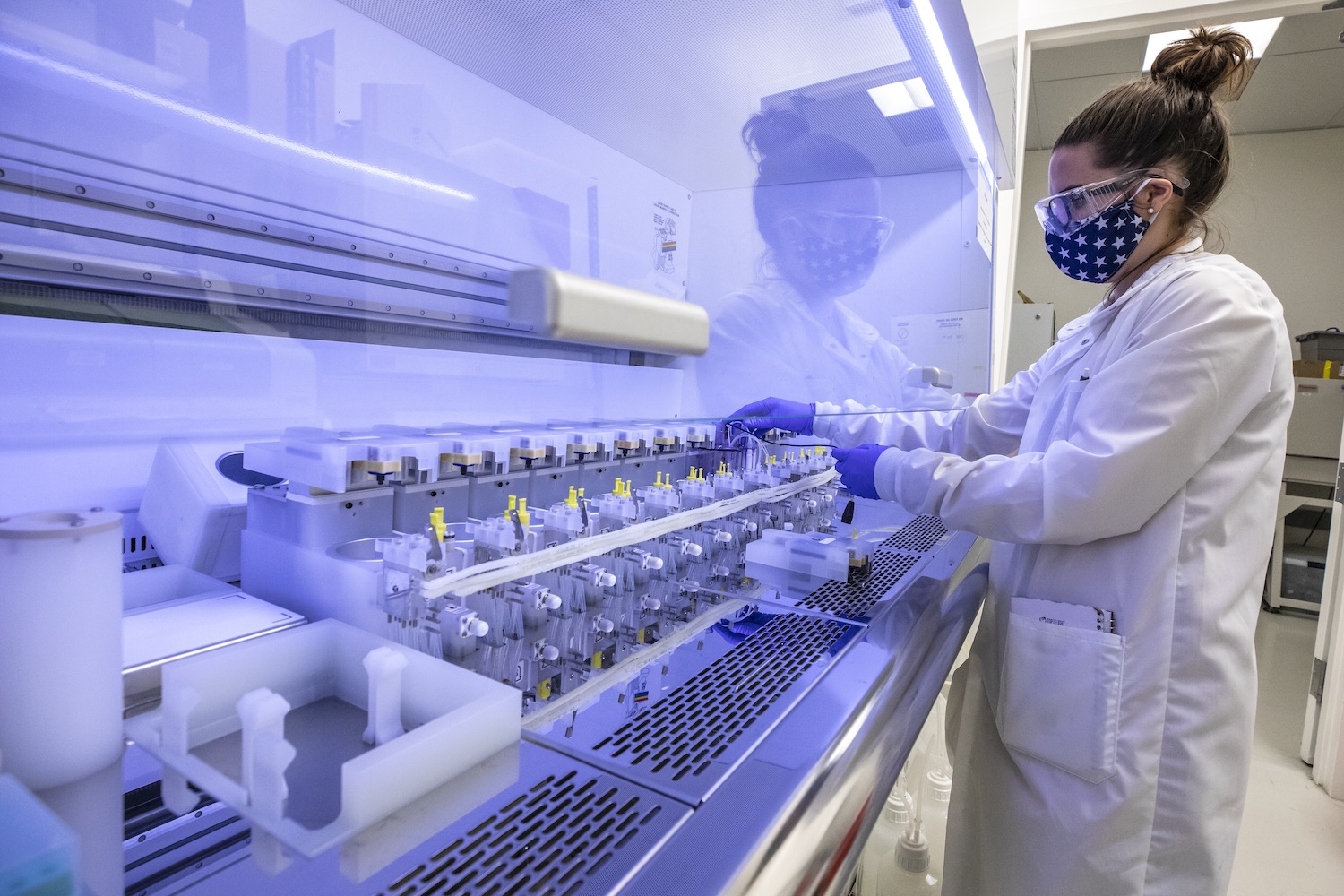Showing an inspiring knack for innovation under pressure, the global scientific community has developed promising tests and treatments for COVID-19 in the span of just a few months. But moving medical technologies from conception to deployment at such an unprecedented rate comes with a multitude of hurdles, one of which is the obvious challenge of scale. How do companies turn a handful of prototypes or a few flasks of drug-secreting cells into a mass-produced product ready for market?
This is the primary focus for process engineer scientists at the Advanced Biofuels and Bioproducts Process Development Unit (ABPDU) at Lawrence Berkeley National Laboratory (Berkeley Lab). The ABPDU was founded to serve as a resource of equipment and expertise for companies or institutions that are using biological processes to generate exciting and potentially revolutionary products. Since opening their doors in 2012, the unit has collaborated with more than 62 groups to accelerate the development of sustainable biofuels, smart materials, innovative foods, and next-generation medicines.
Eager to apply their biomanufacturing know-how to the current crisis, ABPDU teams have been working during the shelter-in-place orders to help two companies scale-up production of new technologies that could aid in ending the pandemic.




